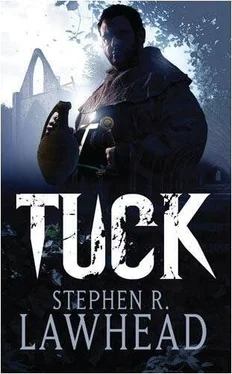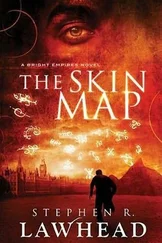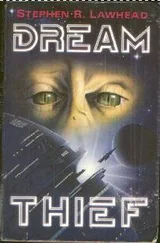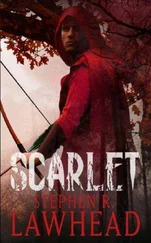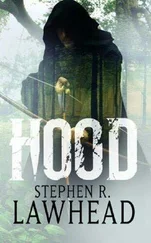Stephen Lawhead - Tuck
Здесь есть возможность читать онлайн «Stephen Lawhead - Tuck» весь текст электронной книги совершенно бесплатно (целиком полную версию без сокращений). В некоторых случаях можно слушать аудио, скачать через торрент в формате fb2 и присутствует краткое содержание. Жанр: Фэнтези, на английском языке. Описание произведения, (предисловие) а так же отзывы посетителей доступны на портале библиотеки ЛибКат.
- Название:Tuck
- Автор:
- Жанр:
- Год:неизвестен
- ISBN:нет данных
- Рейтинг книги:4 / 5. Голосов: 1
-
Избранное:Добавить в избранное
- Отзывы:
-
Ваша оценка:
- 80
- 1
- 2
- 3
- 4
- 5
Tuck: краткое содержание, описание и аннотация
Предлагаем к чтению аннотацию, описание, краткое содержание или предисловие (зависит от того, что написал сам автор книги «Tuck»). Если вы не нашли необходимую информацию о книге — напишите в комментариях, мы постараемся отыскать её.
Tuck — читать онлайн бесплатно полную книгу (весь текст) целиком
Ниже представлен текст книги, разбитый по страницам. Система сохранения места последней прочитанной страницы, позволяет с удобством читать онлайн бесплатно книгу «Tuck», без необходимости каждый раз заново искать на чём Вы остановились. Поставьте закладку, и сможете в любой момент перейти на страницу, на которой закончили чтение.
Интервал:
Закладка:
Slowly, the meal progressed. As the many dishes and platters circulated around the tables, musicians trooped into the hall and sent a fine commotion coursing among the throng at table. This Thomas considered a good sign, as players always gave an evening's roister a more festive air. When men enjoyed themselves, the money flowed more easily, and never more easily than when they were in a celebratory mood.
He watched and waited, listening to the happy clatter around him and idly tuning the strings of his instrument; and when he judged the time to be right, he rose and walked to the high table.
"My lords and ladies all!" he cried aloud to make himself heard above the raucous revel. "A songster! A songster!"
"Hear!" shouted the high sheriff, rising from his chair and pounding on the board with the pommel of his knife. "Hear him! Hear him! We have a minstrel in our midst!"
When the hall had sufficiently quieted, Thomas faced the high table and, with a wide sweep of his hat, bowed low, his nose almost touching his knee. "My lord high sheriff, my best regards," he said. He bowed again, lower still, and said, "Your Majesty, I beg the honour of your attention on this splendid festal evening." Turning to the rest of the company, he waved his arm. "My lords and ladies, gentlefolk all, it is my good pleasure to sing for your amusement."
"What will you sing?" called the sheriff, resuming his seat.
"Tonight, I have prepared a special surprise right worthy of this splendid occasion-but more of that anon. I will begin with a tune that is sure to please Your Majesty." He began strumming, and soon the hall was ringing to the strains of a song called "The Knight and the Elf Queen's Daughter." It was an old song, and most minstrels knew it. Though not the most taxing on a songster's abilities, it had a soothing effect on a restive audience and made a good prelude to better things.
The song concluded, and the last strains were still lingering in the air when Thomas began the lay known as "The Wooing of Ygrain"-also a firm favourite among the nobility, what with its themes of flirtation and forbidden love.
He sang two more short songs, and then, pausing to retune his psaltery, he announced, "Majesty, Lord Sheriff, distinguished lords and ladies, hearken to me now! Tonight in your hearing for the first time anywhere, I give you a song of my own composing-a stirring epic of adventure and intrigue, of kingdoms lost and won, and love most fair and wondrous. I give you 'The Ballad of Brave Rhiban Hud'!"
In fact it was not, strictly speaking, the first time he had sung this song. He had laboured over its verses, true, but in the main it remained much as it had been composed by his grandfather and sung by his father. Indeed, the song had earned his family's reputation and never failed to find favour with an audience so long as the singer took care to adapt it to his listeners: dropping in names of the local worthies, the places nearby that local folk knew, any particular features of the countryside and its people-it all helped to create a sense of instant recognition for those he entertained, and flattered his patrons.
Thomas strummed the opening notes of the song and then, lifting his head, sang:
Come listen a while, you gentlefolk alle,
That stand here this bower within,
A tale of brave Rhiban the Hud,
I purpose now to begin!
The song began well and proceeded through its measured course, pulling the audience into the tale. Very soon the listeners were deep in the singer's thrall, the various lines drawing, by turns, cheers and cries of outrage as events unfolded.
Thomas, knowing full well that he had captured them, proceeded to bind his audience with the strong cadences of the song. For tonight's performance, the tale was set in Nottingham and the forest was Sherwood. William Rufus and the Welsh March and Richard de Glanville never received a mention. Tonight, the king of the tale was John, and the sheriff none other than Sheriff Wendeval himself. It was a risky change of cast-noble hosts had been known to take umbrage at a minstrel's liberties-but Thomas perceived the mood was light, and everyone thrilled to the daring of it.
"God save the king," quod Rhiban to he,
"And them that wish him full well;
And he that does his true sovereign deny,
I wish him with Satan to dwell."
Quod the king: "Thine own tongue hast cursed thyself,
For I know what thou verily art.
Thou brigand and thief, by those treasonous words,
I swear that thou lyest in heart."
"No ill have I done thee," quod Rhiban to king,
"In thought or in word or in deed,
Better I've served than the abbot's foule men,
Who robbed from them in sore need.
"And never I yet have any man hurt
That honest is and true;
Only those that their honour give up
To live on another man's due.
"I never harmed the husbandman,
That works to till the ground;
Nor robbed from those that range the wood
And hunt with hawk or hound.
"But the folk you appointed to rule my stead,
The clergymen, shire reeves, and knights,
Have stolen our homes and impoverish'd our kin
And deny'd us what's ours by full rights."
The good king withdrew to consider the case
And did with his counsellors sit,
In very short time they had come to agree
On a ruling all saw justlie fit:
"King Bran, thenceforward, full pardon shall have,
By order of royal decree.
And the lands that his fathers and grandsires kept,
Have no other ruler than he."
Quod Rhiban: "Praise Christ! This suits me full goode,
And well it becomes of us both.
For kings must be e'er protecting their folk
So hereby we swear you our troth.
"And vow we this day, to the end of the earth, shall grief ne'er come 'tween us twain."
And the glory of Rhiban Hud, eke his king, i'this worldsrealm always shall reign.
Thomas led the crowd a merry chase through the greenwood and the exploits of the noble rogue Rhiban and his struggle to regain his birthright. Justice denied and at last redeemed was a theme that always swayed an English crowd, and it seemed now as if he played upon the very heartstrings of his audience as blithely as he plucked the psaltery. Both king and sheriff listened with rapt expressions; there were occasional sighs from the ladies, and grunts of approval from the men. Deeper and deeper did the spell become, recounting those days long ago-times all but forgotten now, but kept alive in his song. Inevitably, stanza gave way to stanza and the song moved to its end, and Thomas, singing for his king as he had rarely sung before, delivered the final lines:
The seasons pass quickly in the realm of King Bran-
As seasons of joye always do.
John and Will Scadlocke many children now owne
And each have another past due.
Strong sons and fayre daughters to them and their wyves
The Good Lord upon them has blest.
But the fairest and strongest and smartest who is,
None of them e'er has guess'd.
And Rhiban the Hud now feasts in his hall,
For married now has he beene.
And summer has settled in clear, peaceful lands,
For Merian reigns as his queene.
But we see not the fryer who wedded them two,
What has become him his luck?
Lo, newly installed in the bishopric there,
Is one: Bishop Fryer Tuck.
Good gentlefolk all, we have finished our laye-
A song of brave Rhi Bran the Hud;
Taking only from others what never was theirs,
He restored his land to the good.
But one final ride has our Rhiban to make,
Before his and our paths shall part.
See, he has outlived his queene and his friends
And bears he within a sadde heart.
He rides on his steede with a bow by his side,
Читать дальшеИнтервал:
Закладка:
Похожие книги на «Tuck»
Представляем Вашему вниманию похожие книги на «Tuck» списком для выбора. Мы отобрали схожую по названию и смыслу литературу в надежде предоставить читателям больше вариантов отыскать новые, интересные, ещё непрочитанные произведения.
Обсуждение, отзывы о книге «Tuck» и просто собственные мнения читателей. Оставьте ваши комментарии, напишите, что Вы думаете о произведении, его смысле или главных героях. Укажите что конкретно понравилось, а что нет, и почему Вы так считаете.
